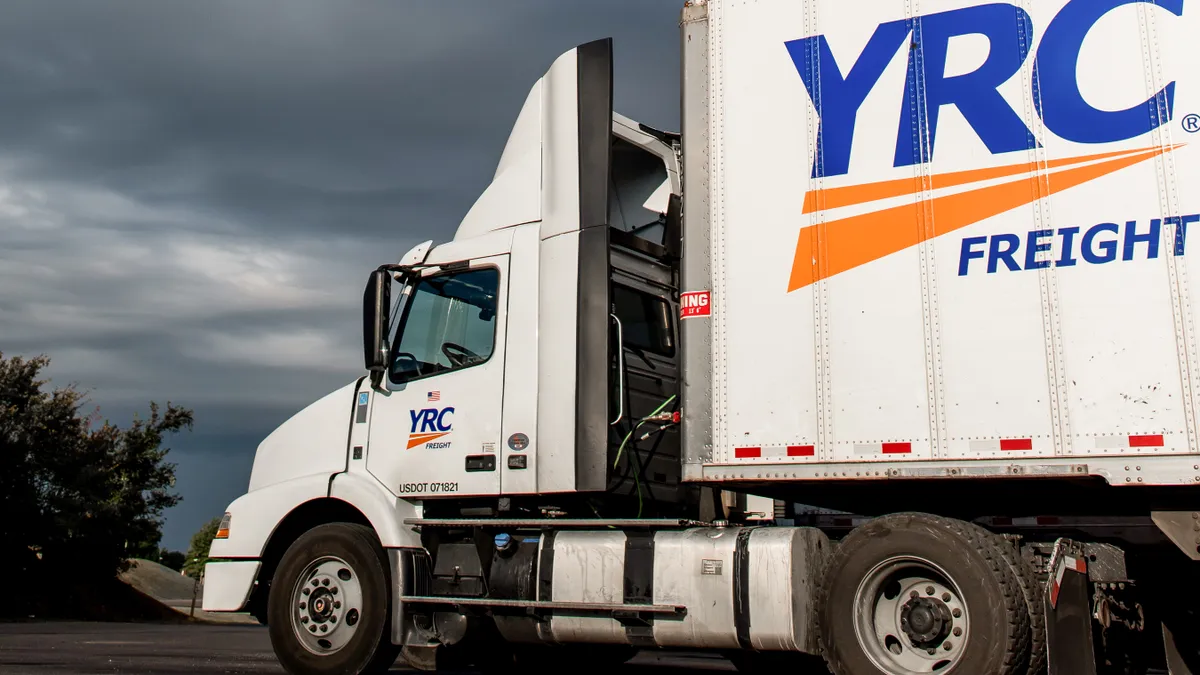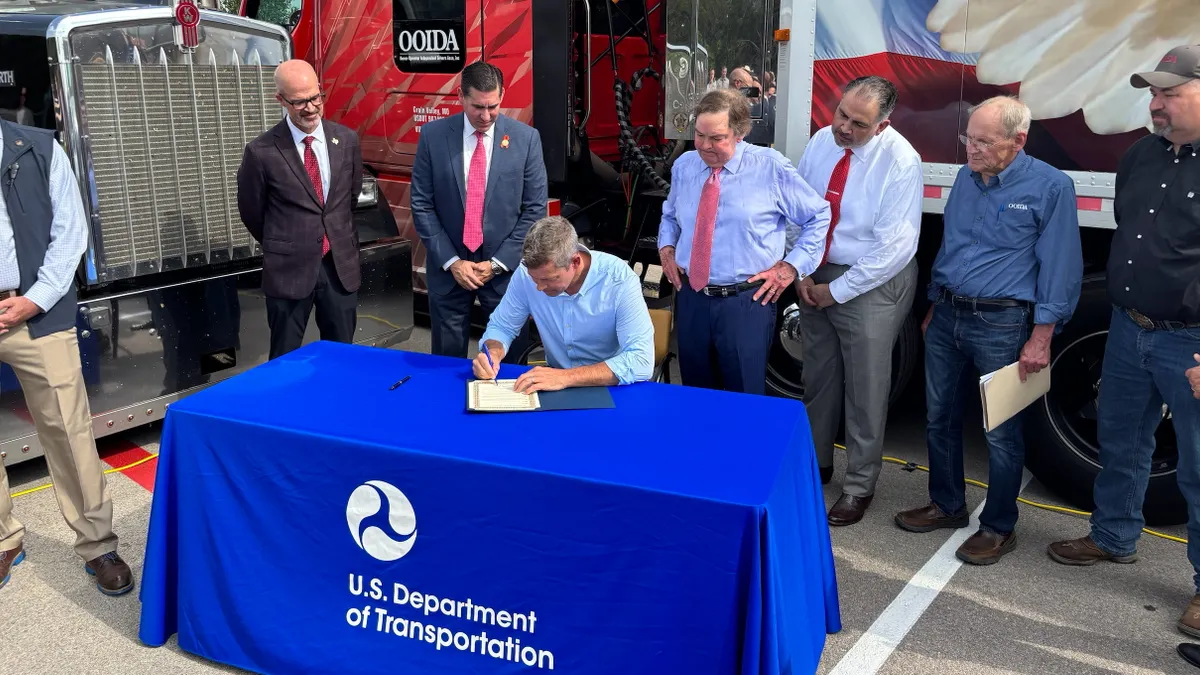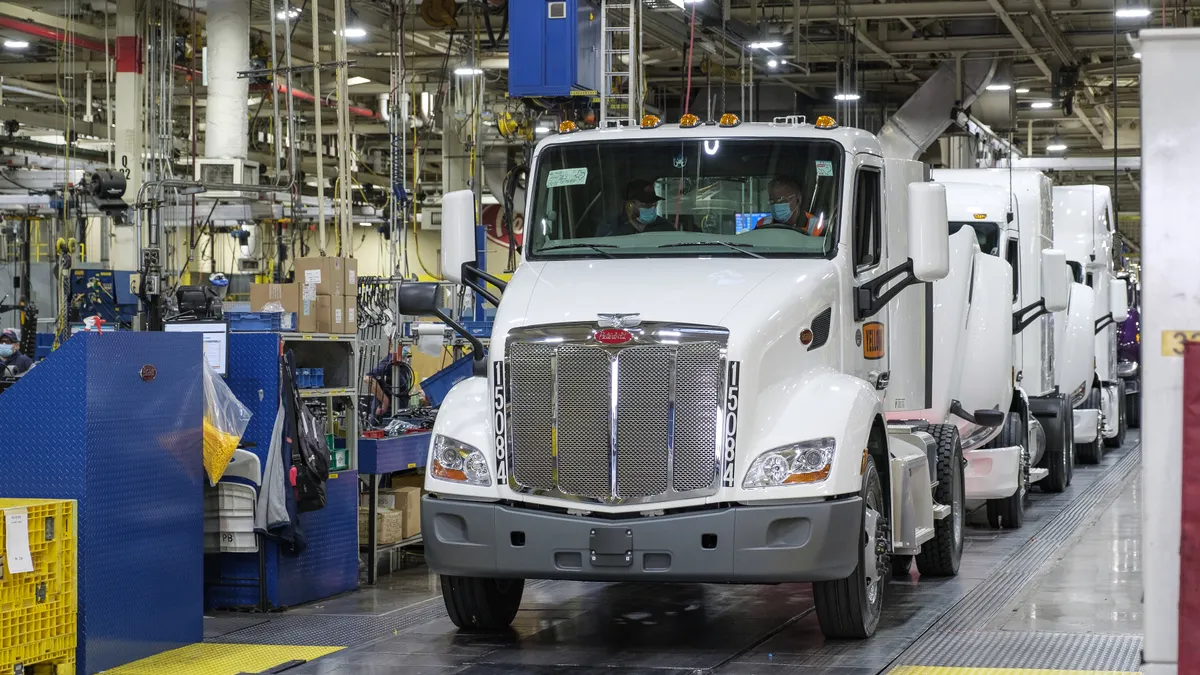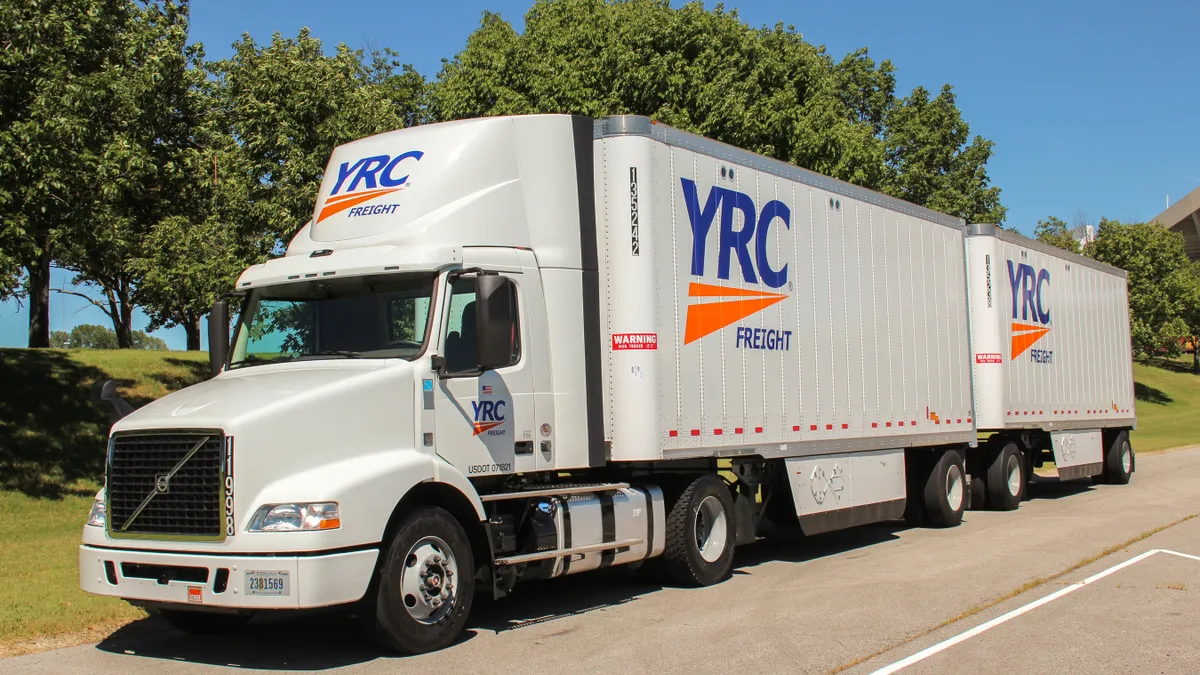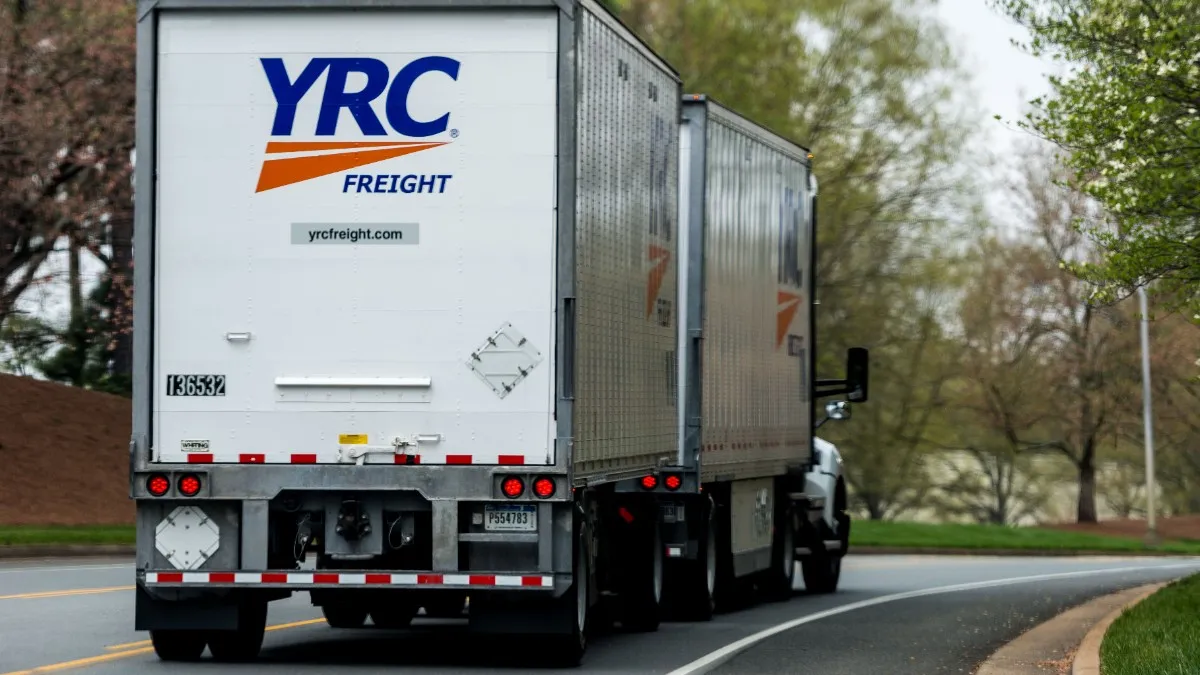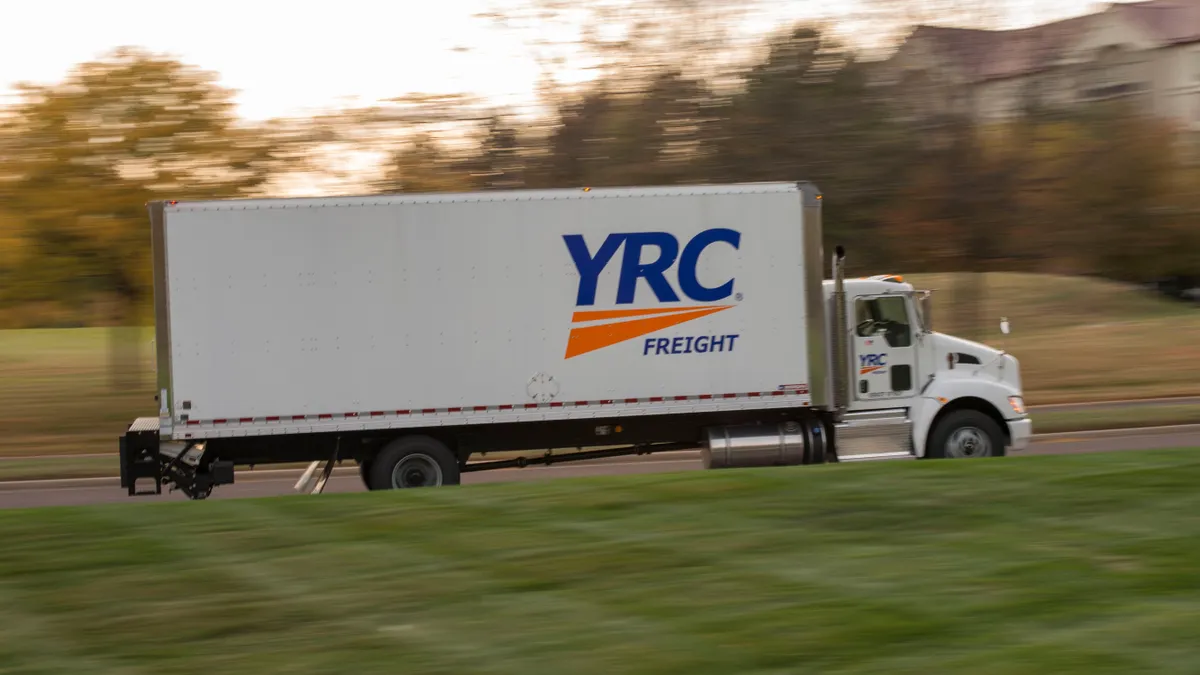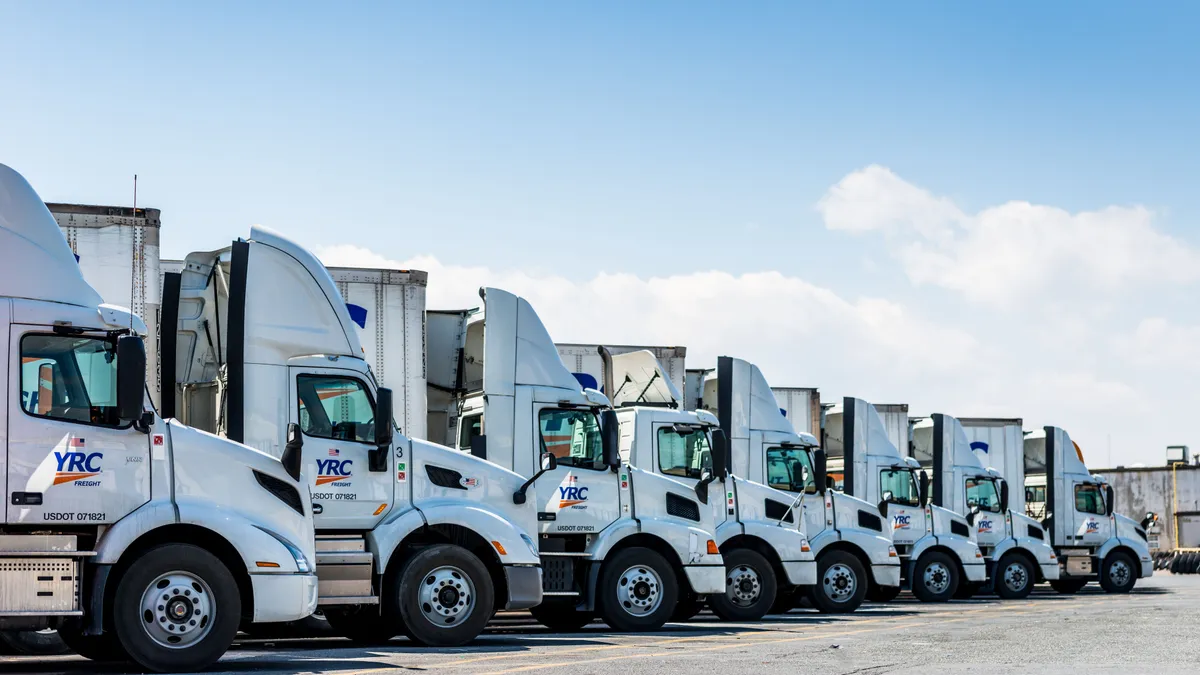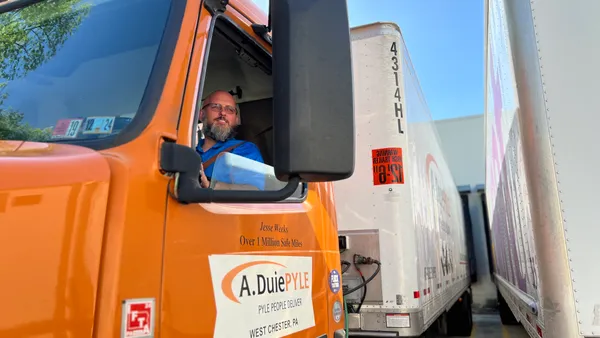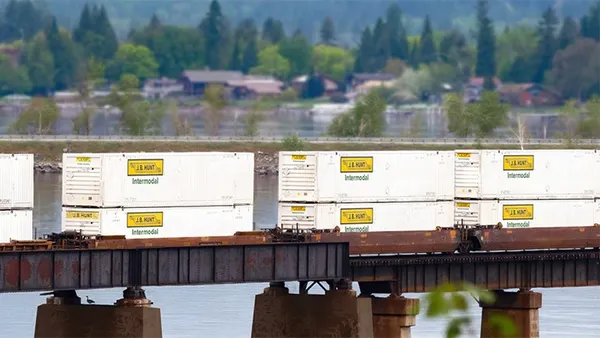Dive Brief:
- In its first earnings presentation since receiving a $700 million federal loan, YRC Worldwide reported Monday the company's operating ratio rose to 100.5%, up 160 basis points since Q2 2019. Part of the solution to the company's efficiency problems, YRC officials said, is using a portion of the loan to buy new Class 8 tractors.
- Taking questions from analysts, which YRC did not do in its last earnings call, CFO Jamie Pierson said new Class 8 tractors would improve safety, as well as efficiency. The YRC fleet is twice as old as the average fleet, Amit Mehrotra, a Deutsche Bank analyst, told The New York Times.
- The federal loan, which came from a $17 billion program that Congress devised for companies that have national security contracts, will allow YRC to focus on operations, Pierson told analysts. But the company has yet to draw down the Tranche B part of the loan, worth $400 million. The Treasury Department has signed off on the loan, but the entire deal has come under scrutiny by an oversight committee in Congress.
Dive Insight:
With tonnage and revenue down compared to the same period last year — by 14.8% and 20%, respectively — YRC hopes efficiencies in its fleet operations will return the LTL giant to profitability.
Pierson said YRC now needs the "latest and greatest" in trucks. While the used market may provide similar fuel-efficiency in models, Pierson said only newer trucks satisfy what the fleets want on safety. For that reason, the company will be going straight to OEMs and not the used market.
"What we have found is some of the used market does not come with that," Pierson said. "Even stuff that is one, two, even three years in age, doesn't come with the anti-collision avoidance technology that we like ... We are not looking to cut corners when it comes to safety." Pierson said the fleet will heavily rely on the Tranche B part of the loan to buy new equipment.
Darren Hawkins, YRC CEO, said newer trucks also come without the "leasing headwinds," and that they are able to inject newer models into the fleet more quickly.
"There is various little execution risk," said Hawkins.
Pierson said the freight downturn that many fleets reported in April had ended, but that other issues are now at the forefront.
"I can tell you with 100% certainty that the capacity crunch is real," said Pierson. "We are having difficulty recruiting drivers to keep up with the increase in volume."
YRC appeared to face an accelerated demise in May, after Stifel analyst David Ross suspended its rating of YRC, and said that the company would fail by July Fourth unless it got a federal loan. The company owed $910 million as of June 30. It lost $37.1 million in Q2.
But industry stakeholders question whether $700 million loan will create long-term financial security for YRC. "This will merely prop up the company to sustain (limp along) when the market ... should allow them to go by the wayside and file Chapter 11," Daniel Lett, director of Global Logistics at Melaleuca, said on LinkedIn.


